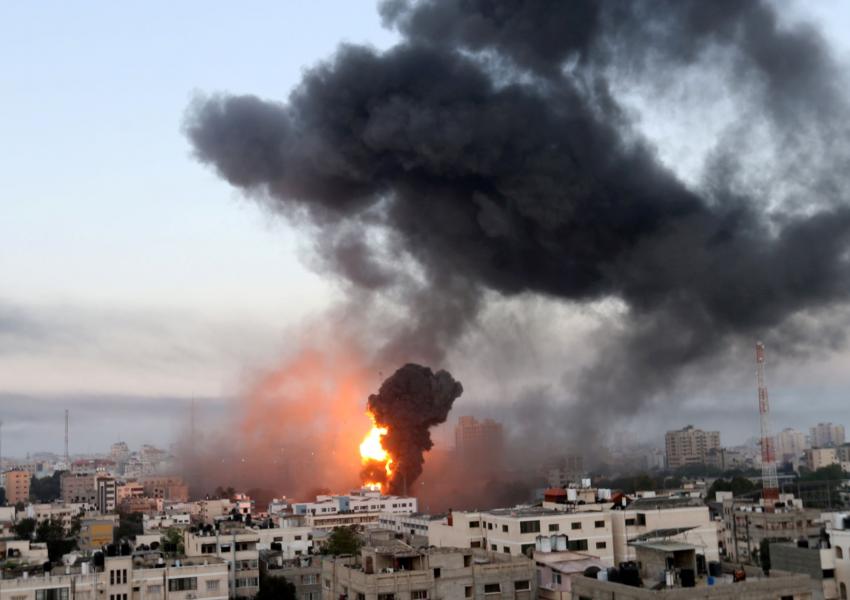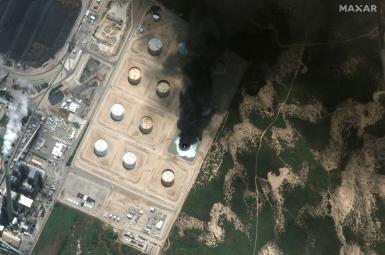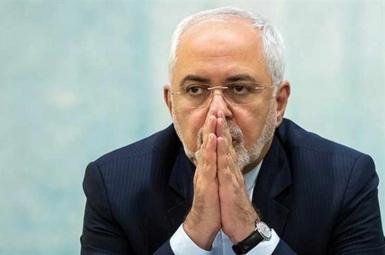
Iran Pledges Strong Support To Palestinians As Zarif Visits Syria
Foreign Minister Mohammad Javad Zarif arrived in Damascus Wednesday morning for talks with Syrian President Bashar al-Assad and senior officials on the flare-up of violence between Israel and Palestinians, the Syrian state news agency (SANA) reported.
Zarif said he had expedited his visit to Damascus due to the dire situation. "As one of the pioneer countries in the Resistance Axis, Syria has a great role in these [circumstances]," he said and added that he would discuss the situation with the Syrian president and other officials as well as "with Palestinian friends."
The situation in Israel and the Palestinian territories is escalating towards full-scale war, the United Nations envoy for the Middle East Tor Wennesland warned in a tweet on Tuesday, as the Israeli military and Palestinian armed groups continue attacks in the heaviest exchange since 2014. The situation arose after clashes in east Jerusalem, especially around Al-Aqsa mosque, as Israeli authorities prepared to clear Palestinian families to make way for Jewish settlers, a process Rupert Colville, spokesperson for the UN high commissioner for human rights, said “leads to a risk of forcible transfer and “may amount to war crimes.”
The Israeli army, which has launched hundreds of air strikes into Gaza, says the Palestinians have fired more than 1,000 rockets into Israel. The death toll since May 6 has risen to 35 Palestinians and five Israelis.
"The attack on Al-Aqsa Mosque and the killing of worshippers is the greatest evidence of the racist, criminal nature of the usurping entity [the Israeli regime], which has always been the main cause of insecurity and stability in the region," Zarif said in a tweet in Arabic on Tuesday. He added that the only "fair solution to the Palestinian issue" was a referendum among all residents of mandate Palestine, including both 1947 Israel and the ‘Palestinian territories’ largely occupied by Israel since 1967.
Supreme Leader Ali Khamenei in a speech to mark the last Friday of Ramadan and Qods Day on May 7, reiterated his call for a referendum to determine the future of Israel/Palestine. But Khamenei did not accept proposals for referendums in Iran made by two of the country's presidents, Mahmoud Ahmadinejad and Hassan Rouhani, to settle important issues.
"Palestinian warriors can bring up the idea of holding a referendum with the participation of the main inhabitants of Palestine,” Khamenei said. “The referendum will determine the political system of the country and its main inhabitants, including the displaced Palestinians [those who left as refugees when Israel was created in 1947], no matter what their ethnicity and religion.”
Over the years, Iran has provided material support to Hamas and Islamic Jihad in Gaza. After a period of cooler relations during the Syrian war when Hamas aligned with Sunni Muslim rebels against Assad, ties between Iran and Hamas improved in 2020, with Khamenei pledging strong support. For the first time, in May 2020 Khamenei spoke openly of providing weapons to Palestinian groups.
“Iran realized Palestinian fighters’ only problem was lack of access to weapons,” he said. “With divine guidance and assistance, we planned, and the balance of power has been transformed in Palestine, and today the Gaza Strip can stand against the aggression of the Zionist enemy and defeat it.”
Referring to the Israeli-Palestinian conflict in a tweet on Wednesday, a member of Iran's parliament Ahmad Naderi said the "clock will tick faster for Israel's annihilation," adding: "This is the blessing [brought on] by the blood of our Haj Qasem [Qasem Soleimani, the Iranian general killed by the United States in 2020 who commanded Iran’s extraterritorial Qods Force]."









